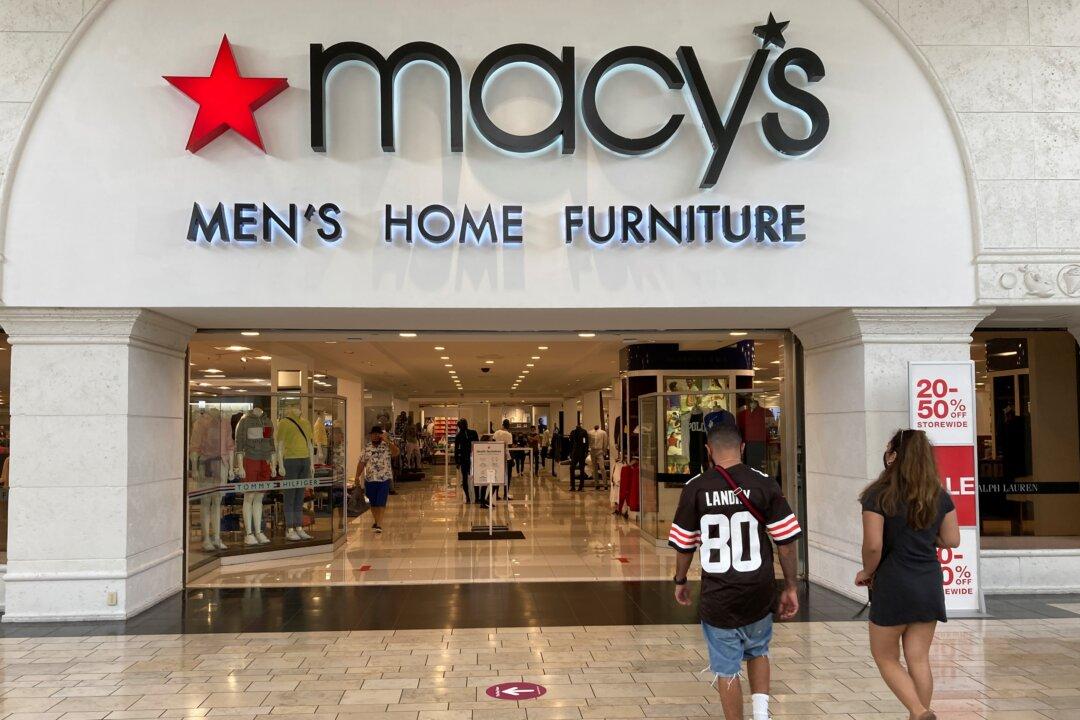Macy’s and Target have both released cautious sales forecasts for the year, signaling possible softness ahead for the all-important consumer spending, which accounts for two-thirds of U.S. economic output.
In its second-quarter earnings report released on Aug. 21, Macy’s slashed its full-year sales forecast, saying that inflation-weary shoppers were more picky with their purchases and that the retailer had to offer more discounts to get people to buy.





